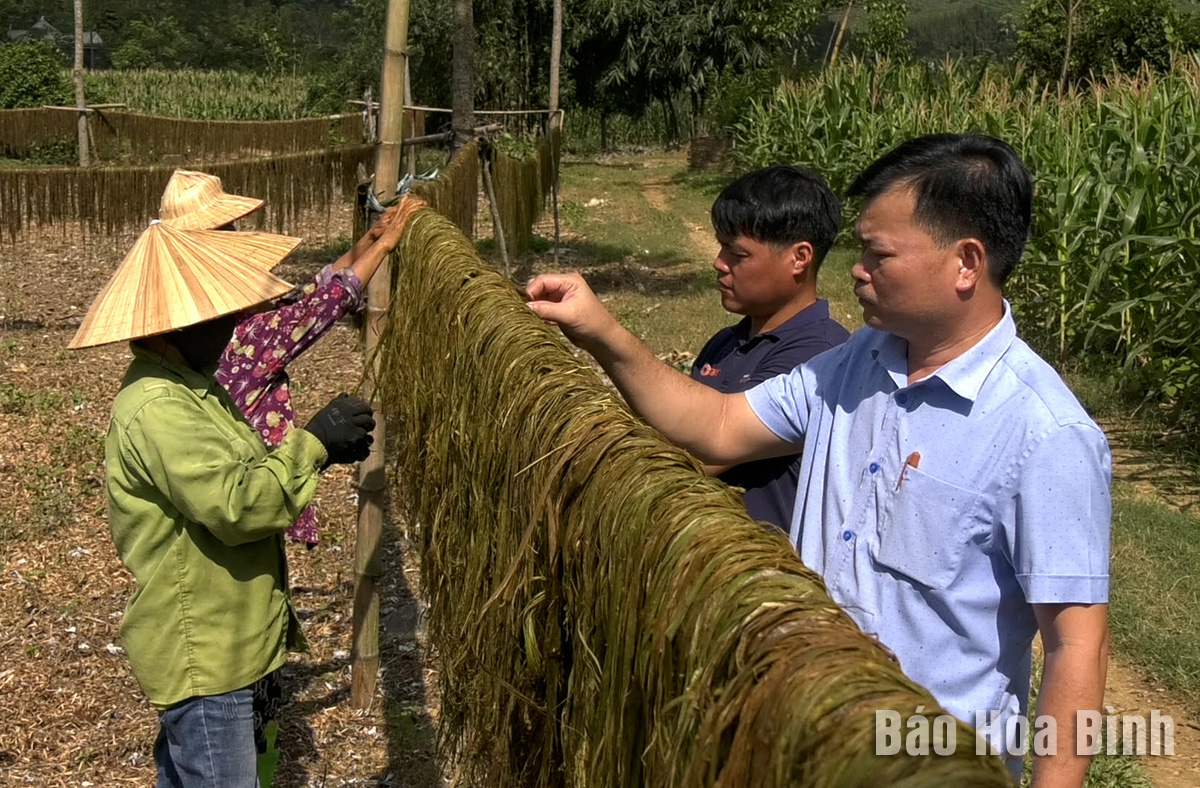Implementing the Party's policy on ethnic affairs, and developing ethnic minority and mountainous areas associated with economic restructuring, Da Bac district’s authority has seriously implemented mechanisms and policies to support production and stabilise the lives of local ethnic minority people.
The ramie planting model contributes to promoting sustainable economic
development in Da Bac district.
Da Bac is the only poor district of Hoa Binh province. The per capita income is
estimated at 37.9 million VND (nearly 1,560 USD) a year. The rate of poor
households accounts for over 26.84% of the district’s total population.
Na Mat hamlet in Tien Phong commune has 87 households with 392 people. The
households' revenue mainly depends on agriculture.
Dinh Cong Thuoc, Secretary of Na Mat hamlet’s Party cell, said in recent years,
the Party Committee and authorities have actively guided local residents to
change the structure and crops and livestock to suit local conditions.
Accordingly, several pig- and cow-raising households with high economic value
have been provided with capital following the National Target Programme on
Socio-economic Development in the Ethnic Minority and Mountainous Areas.
Apart from receiving capital support, local farmers were also provided with
training courses, helping them gain more livestock knowledge in order to
developnew husbandry models and increase incomes, Thuoc said.
In addition to the livestock industry, many effective production models have
been taken shaped in Da Bac district.
Notable, tea and ramie growing is one of the models that contributes to
promoting sustainable poverty reduction in Trung Thanh, Doan Ket, Muong Chieng
and Dong Chum communes. The model has helped many households stablise their
life and increase incomes.
The authority of Da Bac district has set goals to well implement the National
Target Programme for Socio-Economic Development in Ethnic Minority and
Mountainous Areas by 2025, and other programmes and projects, aiming to
increase the average income of ethnic minority communities and reduce the ratio
of poor households in ethnic minorities areas by 2.3 – 3% per year.
Vice Chairman of the Da Bac district People’s Committee Ban Kim Quy said the
district authority has paid attention to developing goods production models
suitable to the economic characteristics of each area and each ethnic minority
group in the locality, providing seed and technical support to local farmers,
developing brands for products, establishing more cooperatives and seeking
consumption markets for local products.



